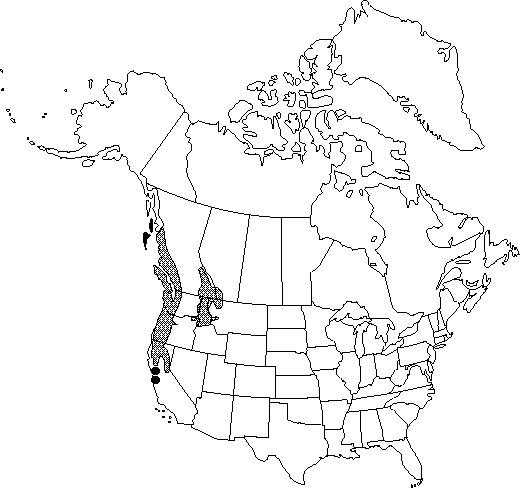Taxus brevifolia
N. Amer. Sylv. 3: 86, plate 108. 1849.
Shrubs or small trees to 15 (–25) m, dioecious; trunk to 6 (–12) dm diam., straight to contorted, fluted; crown open-conical. Bark scaly, outer scales purplish to purplish brown, inner ones reddish to reddish purple. Branches horizontal to drooping. Leaves 1–2.9 cm × 1–3 mm, pale green abaxially, cuticular papillae present along stomatal bands, shiny yellow-green adaxially, epidermal-cells as viewed in cross-section of leaf mostly taller than wide. Seed ovoid, 2–4-angled, 5–6.5 mm.
Phenology: Seeds maturing late summer–fall.
Habitat: Open to dense forests, along streams, moist flats, slopes, deep ravines, and coves
Elevation: 0–2200 m
Distribution

Alta., B.C., Alaska, Calif., Idaho, Mont., Oreg., Wash.
Discussion
The name Taxus baccata Hooker has been misapplied to this species.
The leaves of Taxus brevifolia are usually somewhat falcate.
The wood of Taxus brevifolia is hard and durable, yet easily worked, making it popular for construction of novelty items by local woodworkers. Because of this, large trees are unscrupulously poached; in some areas the species has been nearly extirpated. The bark of the tree is a promising natural source of taxol, a drug for treating various cancers; exploitation of the species for medicinal purposes is further threatening it.